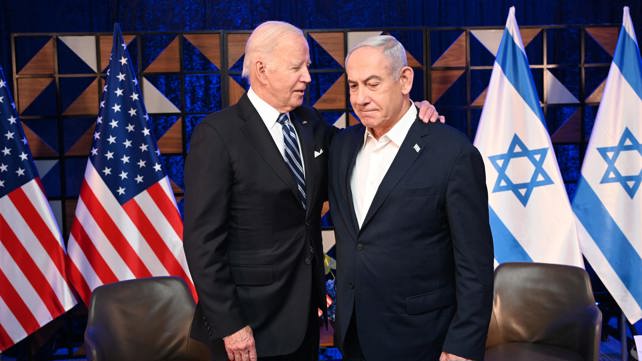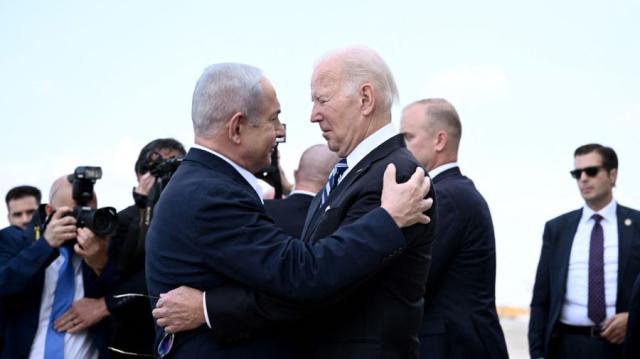
Israel Prime Minister Benjamin Netanyahu expressed gratitude to U.S. President Joe Biden for U.S. influence over a United Nations Security Council resolution. (Photo: The Times of Israel)
Netanyahu Expresses Gratitude for U.S. Influence on UN Resolution Addressing Gaza Conflict
In a crucial turn of events, Israel Prime Minister Benjamin Netanyahu expressed gratitude to U.S. President Joe Biden for U.S. influence over a United Nations Security Council resolution. This resolution primarily focused on facilitating humanitarian aid into Gaza, notably omitting a call for a ceasefire in the ongoing conflict with Hamas. The Prime Minister conveyed Israel’s unwavering commitment to pursue its objectives in the war: the dismantling of Hamas and the release of all hostages held in the Strip.
President Biden highlighted the paramount importance of safeguarding civilians and enabling their safe relocation away from active combat zones while emphasizing the essentiality of supporting humanitarian aid efforts. Furthermore, discussions encompassed the imperative need for the release of hostages held by Hamas, underscoring the significance of sustained dialogue between the two leaders.
The proposal put forward by the United Arab Emirates went through several revisions in response to objections from the United States, ultimately resulting in abstentions from both the U.S. and Russia. The resolution supports the designation of a special coordinator appointed by UN Secretary-General António Guterres to supervise the distribution of humanitarian aid to Gaza.
READ ALSO: Controversy Surrounds Ivanka Trump And Jared Kushner’s Israel Visit Amidst Backlash
Regrettably, Hamas, exercising de facto control over the Gaza Strip, found the resolution inadequate as it did not demand a definitive ceasefire. Hamas characterized the U.S. as diluting the resolution, ultimately undercutting the international community and the United Nations General Assembly.
The situation in Gaza remains dire, with over 20,200 casualties and 1.9 million displaced individuals amidst a spiraling humanitarian crisis. The conflict, sparked by an assault on Israeli territory by Hamas, necessitates urgent attention.
The recent development serves as a critical juncture, fundamentally reshaping the dynamics of the Israel-Hamas conflict and underscoring the complex international interventions shaping the trajectory of the crisis.
READ ALSO: Quinnipiac Poll Reveals Erosion Of U.S. Support For Military Aid To Israel Amidst Bipartisan Concerns
























